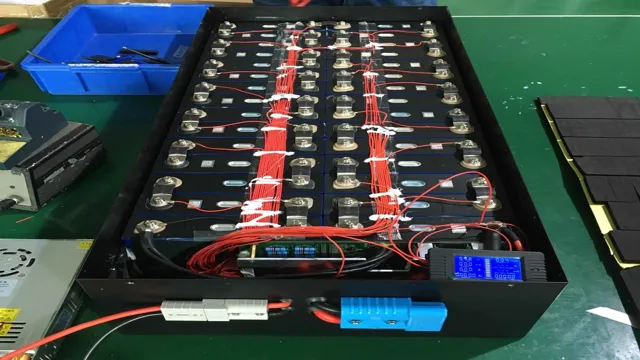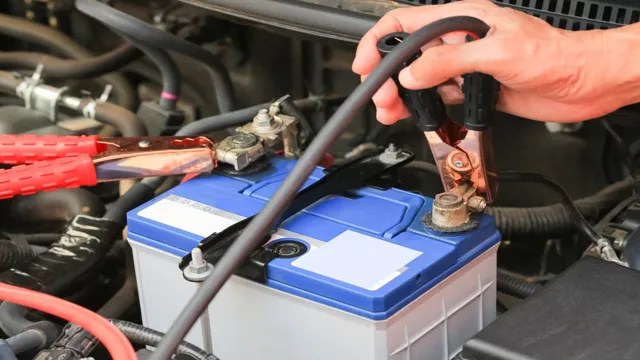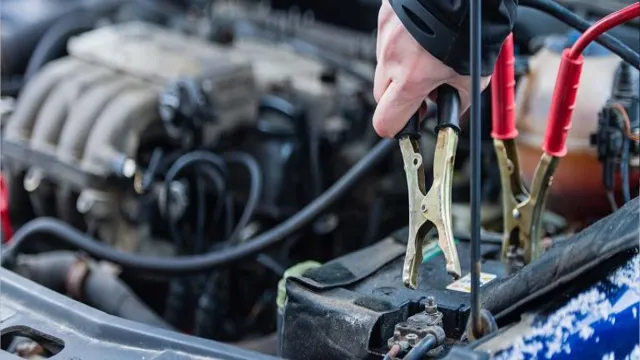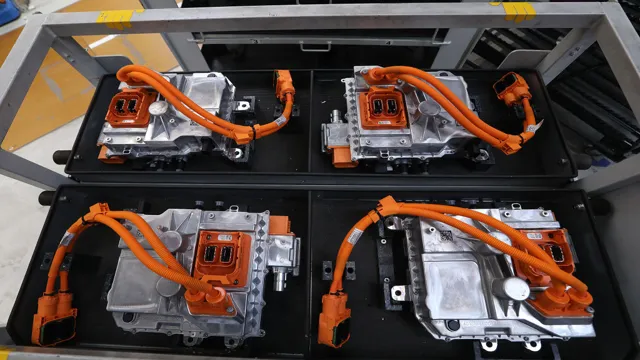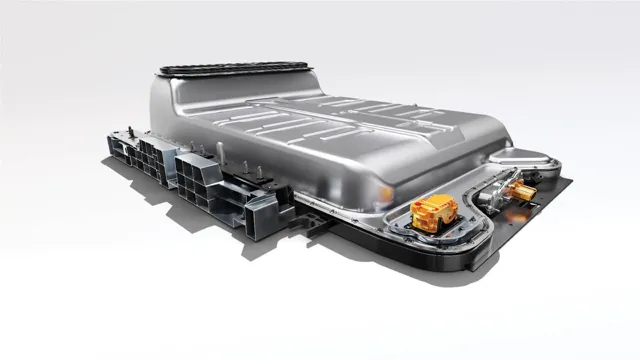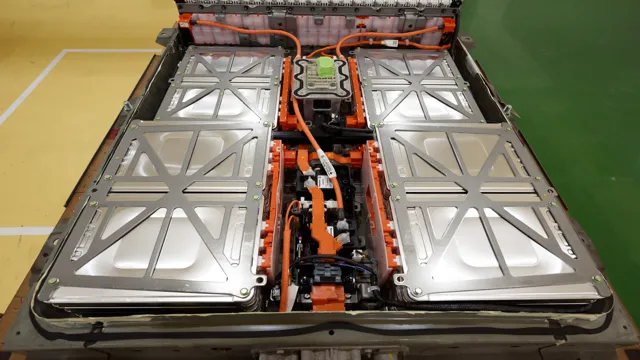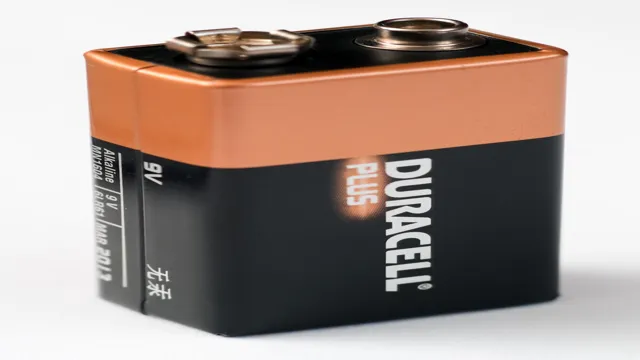Revamp Your Ride: Discover the Benefits of Electric Car Conversion with Lithium Batteries
Have you ever dreamed of owning an electric car but didn’t want to pay a sky-high price for a brand new one? Or, maybe you love your current car so much that you don’t want to part with it, but you wish it was electric. Well, the good news is you don’t need to buy a brand new electric car to go green! You could convert your gas-guzzling car into a lean, green driving machine with the power of lithium batteries. Electric car conversion has been around for quite some time, but it wasn’t until recently that lithium batteries became an affordable option for conversion.
Lithium batteries are lighter, more powerful, and have a longer lifespan than traditional lead-acid batteries. This means they can make your car more efficient, faster, and give you a longer range. Converting your car into an electric vehicle with lithium batteries can be a DIY project or done professionally.
Either way, it’s a fun way to get hands-on experience with electric cars and contribute to a greener future. Plus, as gas prices continue to rise and regulations on carbon emissions tighten, the savings on fuel and maintenance costs will only continue to increase. So, are you ready to take on the challenge of an electric car conversion with lithium batteries? It’s a win-win situation for the environment and your wallet.
Advantages of Lithium Batteries for Electric Car Conversion
Electric car conversion using lithium batteries has become increasingly popular in recent years due to its numerous advantages. Firstly, lithium batteries are significantly lighter compared to traditional lead-acid batteries, which ultimately reduces the overall weight of the vehicle. This results in lower energy consumption, longer battery life, and increased efficiency.
Secondly, lithium batteries have a higher energy density, which means they can store more energy in a smaller space. This allows for more storage capacity and an extended driving range. Additionally, lithium batteries have a longer lifespan and require less maintenance compared to lead-acid batteries.
The cost of lithium batteries has also decreased in recent years, making it a more cost-effective option for electric car conversions. Overall, the use of lithium batteries for electric car conversions provides numerous advantages that make it a more reliable, efficient, and cost-effective option.
Higher energy density & longer range
When it comes to converting conventional cars into electric ones, lithium batteries offer some significant advantages. One of the main benefits is their higher energy density, which allows them to store more power in less space than the traditional lead-acid batteries. As a result, electric cars powered by lithium batteries can have a longer range on a single charge.
This is critical for drivers who want to travel longer distances without worrying about recharging their cars frequently. Additionally, lithium batteries are more lightweight, making them easier to install and integrate into converted cars. With their durability and low maintenance costs, lithium batteries make a more efficient and cost-effective option for electric car conversion.
With these benefits, it’s no wonder that more and more people are opting for lithium batteries when converting their gas-guzzlers into eco-friendly vehicles.
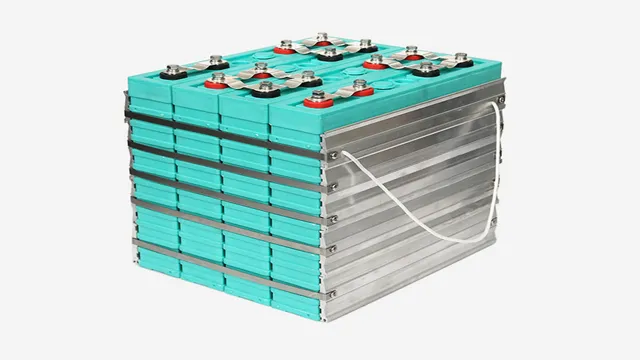
Lighter weight & improved performance
When it comes to converting a gas-powered car to electric, the choice of battery technology is one of the most critical decisions you can make. Lithium-ion batteries offer numerous advantages over traditional lead-acid batteries, making them the preferred choice for electric vehicle conversions. One of the primary benefits of lithium batteries is their lighter weight.
Lithium batteries weigh significantly less than lead-acid batteries, which translates to improved performance and efficiency. In addition, lithium batteries have a higher energy density, which means they can store more energy in the same amount of space, allowing you to travel longer distances on a single charge. Lithium batteries are also more sustainable, as they have a longer lifespan and can be recycled more easily than traditional lead-acid batteries.
These are just some of the reasons why lithium batteries are the preferred choice for those converting their cars to electric. So, if you’re thinking about making the switch, consider the advantages of lithium-ion batteries and take the first step towards a more sustainable future.
Longer lifespan & lower maintenance cost
When it comes to converting a traditional gasoline-powered car to electric, one of the biggest advantages of using lithium batteries is their longer lifespan and lower maintenance cost. Unlike traditional lead-acid batteries, which have a limited lifespan and require regular maintenance, lithium batteries can last up to 10 years or more with little to no maintenance required. This means that electric car owners can enjoy a much more cost-effective and hassle-free ownership experience.
Additionally, lithium batteries are much lighter than lead-acid batteries, which means they can help to increase the range of the car while reducing its overall weight. In short, if you’re thinking of converting your car to electric, using lithium batteries is a smart choice that can save you money and hassle in the long run.
Factors to Consider Before Electric Car Conversion
If you’re considering converting your car to run on electricity, there are a number of factors to consider before making the switch. One of the most important of these factors is the type of battery you’ll use. Lithium batteries are generally the most efficient and effective choice for electric car conversion, as they offer a high level of energy density, which means you’ll be able to travel further on a single charge.
Other considerations include the cost of the conversion, the range you’ll be able to achieve on a single charge, and the availability of charging stations in your area. It’s also important to consider the environmental impact of your conversion, as electric cars are only truly green if the electricity that powers them comes from renewable sources. By weighing these factors carefully, you’ll be able to make an informed decision about whether electric car conversion is right for you.
Budget & availability of parts
When considering an electric car conversion, it’s important to keep your budget and the availability of parts in mind. Converting a traditional gas-powered car to electric can be expensive and time-consuming, so it’s essential to plan ahead. Understanding the cost of parts, components, and labor required for the conversion upfront can help you budget appropriately.
Additionally, the availability of necessary parts and components can vary depending on your location and the make and model of your vehicle. It’s essential to research and source reputable suppliers for the necessary parts to ensure the success of your conversion. Keeping these factors in mind can help you not only plan your budget but also ensure a smooth and successful conversion process.
Vehicle compatibility & safety regulations
Electric Car Conversion Before opting for electric car conversion, you need to consider a few key factors. One of the most important things to keep in mind is vehicle compatibility. Not all cars are suitable for electric conversion, and you need to choose a model that can handle the demands of an electric motor.
Another crucial element is safety regulations. Electric cars have different safety standards than traditional gasoline cars, and you need to ensure that your converted vehicle meets these new requirements. Additionally, you should consider the cost of the conversion process and whether it makes financial sense for your individual needs.
It’s vital to do your research and consult with professionals to ensure that your conversion is safe and successful. Keep in mind that electric car conversion is not a simple DIY project and requires expertise to complete. Overall, electric car conversion offers a great opportunity to lower your carbon footprint and join the revolution of sustainable transportation.
Environmentally-friendly impact
When it comes to electric car conversions, there are a few important factors to consider, especially if you are looking to make an environmentally-friendly impact. First and foremost, you need to assess the condition of your current vehicle. A car that is already in need of major repairs may not be the best candidate for conversion.
It’s also important to consider the age and mileage of your vehicle. Older cars with high mileage may not have the range or power needed for a successful conversion. Another key factor to consider is the availability of parts and technical expertise in your area.
Do you have access to a reliable mechanic who is capable of completing the conversion? Finally, you need to consider the cost of the conversion and whether it makes financial sense for you. While electric cars can be more expensive upfront, they can save you money in the long run by reducing fuel costs and maintenance needs. By carefully weighing these factors, you can make an informed decision about whether an electric car conversion is right for you.
Choosing the Right Lithium Batteries for Electric Car Conversion
When it comes to converting a car to electric power, choosing the right lithium battery is crucial. Lithium batteries offer a high energy density and long lifespan, making them an ideal choice for electric car conversions. However, selecting the right lithium battery for your conversion can be tricky.
Factors such as voltage, capacity, and weight must all be considered. Additionally, you must decide between lithium-ion or lithium polymer batteries, each with their own advantages and disadvantages. Ultimately, the right choice will depend on your specific needs and goals for your electric car conversion.
So, before making a decision, it’s important to do your research, consult with experts, and consider all your options carefully. With the right lithium battery, you can enjoy a powerful and efficient electric vehicle that’s both environmentally friendly and cost-effective.
Capacity & voltage requirements
When it comes to choosing the right lithium batteries for your electric car conversion, there are a few important factors to consider. One of the most crucial considerations is the capacity and voltage requirements of your vehicle. This will depend on a range of factors, including the weight of the vehicle, the type of motor you are using, and your driving habits.
In general, you will need a higher capacity and voltage rating for larger vehicles and more powerful motors, while smaller cars and motors can make do with lower ratings. It’s also important to consider the specific needs of your vehicle, as well as your budget and other constraints, when choosing the right lithium batteries for your conversion. By taking the time to do your research and carefully evaluate your options, you can ensure that you select the best batteries for your electric car and enjoy a reliable and efficient driving experience.
Brand reputation & customer reviews
When it comes to converting your gas-powered car to an electric one, choosing the right lithium batteries is crucial. Not only will they determine the power and range of your vehicle, but they can also affect its safety and durability. That’s why it’s important to do your research and invest in a reputable brand with positive customer reviews.
One such brand is Tesla, known for their high-quality lithium-ion batteries that have revolutionized the electric car industry. Other options include LG Chem, Panasonic, and Samsung SDI. But don’t just take our word for it – read up on customer experiences and tech reviews to find the best fit for your electric car conversion project.
By choosing the right lithium batteries, you can ensure a smooth and efficient ride while also contributing to a more sustainable future.
Conclusion: Switch to Lithium Batteries for a Smarter Electric Car Conversion
In conclusion, converting a car to run on lithium batteries is a brilliant way to reduce carbon emissions and save money on gas. Not only will it make you feel like you’re driving in the future, but it’s also a great way to impress your eco-conscious friends. Plus, you’ll never have to worry about stopping at a gas station again – and who doesn’t love that? So go ahead and take the leap into the world of electric car conversion – your wallet and the planet will thank you.
“
FAQs
What is an electric car conversion?
An electric car conversion involves modifying a combustion engine vehicle to run off electric power instead.
What are lithium batteries?
Lithium batteries are rechargeable batteries that use lithium ions to store and release energy.
Why are lithium batteries preferred for electric car conversions?
Lithium batteries have a higher energy density, allowing them to store more energy in a smaller size and weight compared to other battery types.
How long does it take to complete an electric car conversion using lithium batteries?
The time it takes to complete an electric car conversion using lithium batteries depends on several factors such as the type of vehicle and the complexity of the conversion. On average, it can take several weeks to a few months to complete the conversion.

